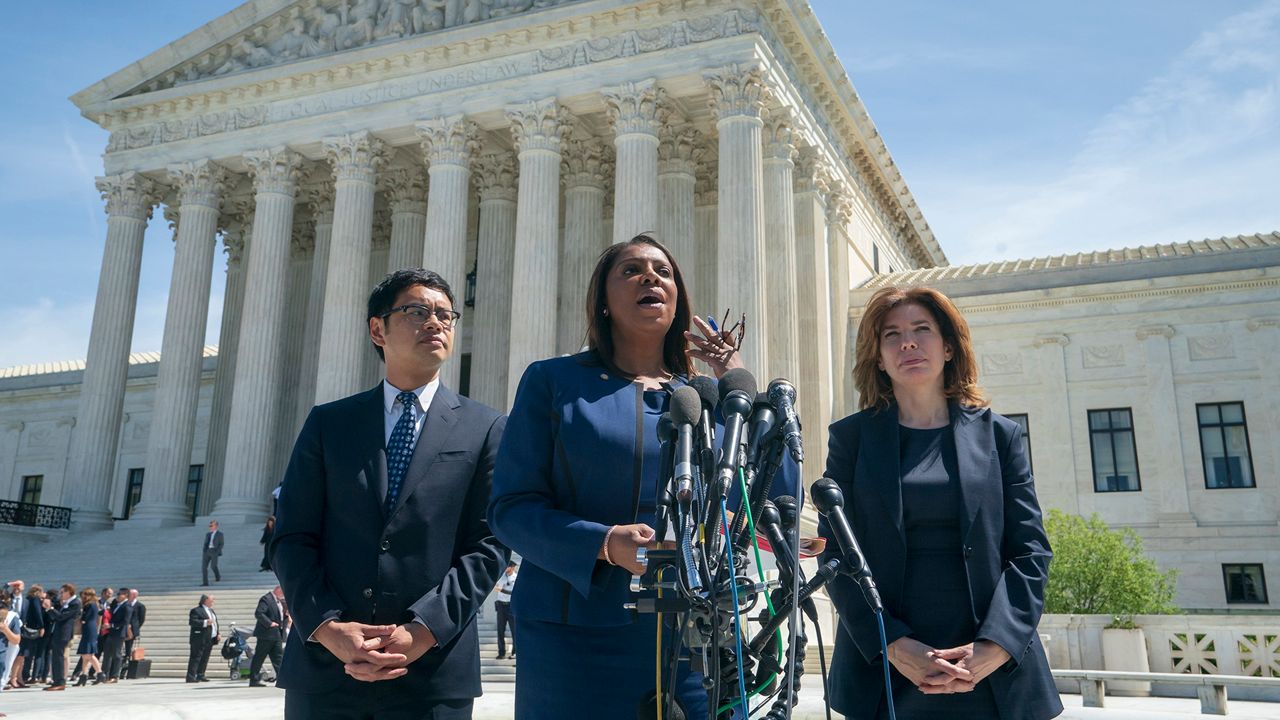New York is among those leading a legal challenge to a new question on the upcoming 2020 U.S. Census that asks whether a person is a citizen.
Immigration advocates, as well as New York elected officials, fear the question will have a chilling effect on residents, documented or otherwise, leading them to not participate in the survey and resulting in an undercount.
The question is being challenged at the U.S. Supreme Court.
“This case should be decided on the merits of the arguments and according to the letter of the law,” said New York Attorney General Letitia James. “I strongly believe that the facts and the record support our claims and am hopeful that the honorable justices will agree. At the same time, we cannot fail to recognize that — at the heart of this matter — there is more at issue here than just surveys and statistics. It is about how our government is organized, how power is equally divided, and how aid is distributed equitably.”
New York is already likely due to lose at least one seat in the House of Representatives, whose membership is determined by a state’s population, amid slow population growth over the last decade. The state lost two states after the 2010 Census.
However, New York City especially has seen its population grow amid a surge in immigration in recent years. Nearly half of the workforce in New York City alone is composed of immigrant workers.
“Fundamentally, the decennial census is a measure we use to deliver on fairness, one of our nation’s core tenets. Fairness requires that assistance reaches those who need it the most,” James said in the statement. “It requires that communities have equal representation in government and that no group, or neighborhood, or individual is marginalized. Adding a question about citizenship to the census would lead to undercounting communities across America — particularly in immigrant and Hispanic communities.”
The state government is leading it a separate effort meant to ensure a fair count through the New York Department of State, with a task force holding meetings around the state on the issue.



